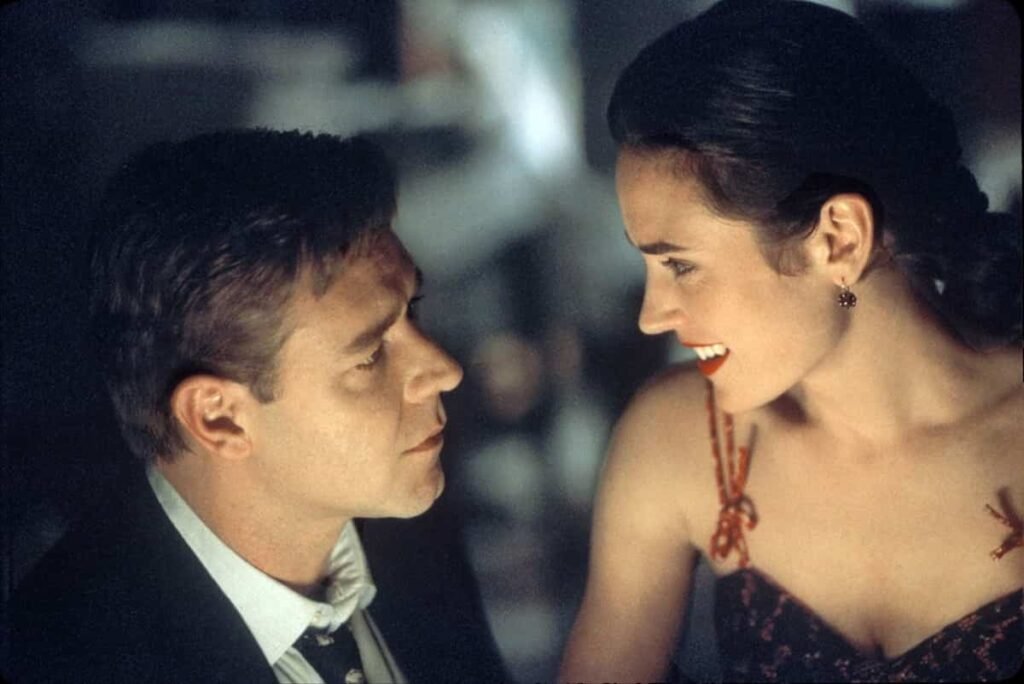A Riveting Exploration of Morality and Harassment
Key Points
- Tackles sensitive issues like workplace harassment and the #MeToo movement.
- Stellar performances by Sana Javed as Afreen and Imran Abbas as Shahwais.
- Themes include faith, justice, family dynamics, and the power of redemption.
- Offers a profound moral lesson on the consequences of actions.
- A balanced mix of suspenseful storytelling, deep societal commentary, and captivating characters.
Plot Overview: A Story of Morality, Resilience, and Divine Justice
“Darr Khuda Say” is a gripping Pakistani drama that boldly addresses prevalent yet often overlooked societal issues. At its heart, the narrative follows two central characters: Afreen Siddiqui (Sana Javed), a strong, virtuous young woman, and Shahwais Akhtar (Imran Abbas), a wealthy yet morally corrupt businessman.
Shahwais, married to his terminally ill wife Gul, abuses his power as Afreen’s employer, attempting to manipulate and harass her. Despite facing false accusations and family turmoil—partly driven by doctored images and lies—Afreen remains resilient. Her steadfast faith in Allah and her determination to uncover the truth underpin the entire storyline. Meanwhile, subplots such as her sister Tamkeen’s ill-fated relationship with Shahwais deepen the drama’s complexity. Redemption, family trust, and divine justice are prominent themes explored, resonating deeply with audiences.
Notable Characters and Memorable Performances
The drama boasts a talented ensemble cast:
- Afreen Siddiqui (Sana Javed): Sana vividly portrays Afreen, a morally upright and brave character. Her role as a beacon of strength navigates emotional complexity with sincerity.
- Shahwais Akhtar (Imran Abbas): Imran masterfully embodies manipulation and resilience-breaking anger. His descent into moral corruption is both horrifying and revelatory, cementing his performance as crucial to the success of the drama.
- Tamkeen Siddiqui (Kiran Haq): Tamkeen serves as the tragic foil; Kiran’s performance aptly balances naivety and despair.
- Supporting Cast: The relatable portrayals by actors like Qavi Khan (as Afreen’s conflicted father) and Mariam Mirza (as the ailing yet impactful Gul) enhance the show’s overall depth.
Bold Themes and Takeaways
“Darr Khuda Say” delves bravely into sensitive areas, such as:
- Workplace Harassment and #MeToo: By showcasing a predator in a corporate environment, the drama stresses women’s courage to confront exploitation.
- Moral and Social Consequences: It starkly portrays how poor decisions, like Shahwais’, can spiral destructively, impacting lives and reputations.
- Divine Justice Perspective: A central message—faith ensures that justice will eventually prevail—caters to cultural and spiritual values.
Direction, Cinematography, and Execution
Director Anjum Shahzad excels at transitioning between family discontent, workplace tension, and emotional drama. Skillful editing and close-ups amplify crucial confrontations. However, some visual monotony in settings restrains artistic diversity.
The narrative pacing keeps momentum, although a few rushed romantic arcs, like Tamkeen’s plotline, slightly weaken cohesion.
Strengths and Weaknesses
Strengths:
- Critical societal subject matter is boldly addressed.
- Nuanced portrayals, particularly by Sana and Imran.
- Well-executed twists and suspense.
Weaknesses:
- Some subplots lack compelling development.
- Dragged pacing detracts from emotional momentum.
Fans’ Reception & FAQs
What did viewers love?
Audiences praised Afreen’s undeterred faith and Sana Javed’s trailblazing role. Many connected with the focus on not normalizing abuse or stereotyping survivors.
Common Criticism?
Critics disliked how family doubts often felt unnatural, or Tamkeen’s motivations/spontaneity.
Conclusion
Amalgamating hard-hitting themes with heartfelt family resonance, Darr Khuda Say emerges as utterly unforgettable. Its thought-provoking narrative, encapsulated by Sana Javed’s iconic performance, prolongs an important nationwide #metoo-echo ignition.


